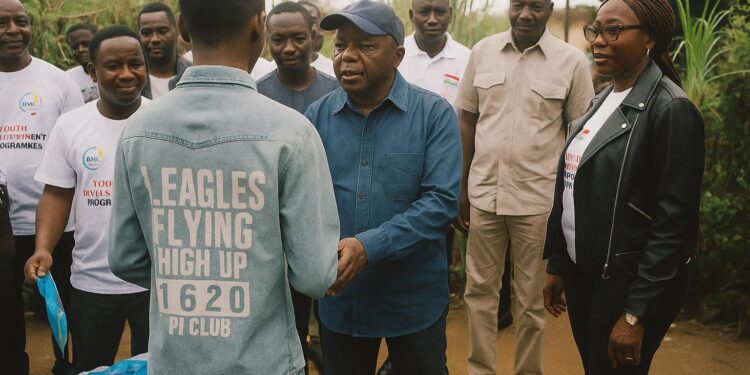A Tactical Roll-Out Against an Enduring Foe
The dense forests that frame the Pool department have long provided a haven for Anopheles mosquitoes, making malaria the first cause of morbidity reported by the Ministry of Health. On 2 August, Prefect Jules Mounkala Tchoumou gave the ceremonial signal for the distribution of long-lasting insecticidal nets (LLINs) in Kinkala, reaffirming the Republic of Congo’s commitment to reducing malaria incidence by at least fifty per cent by 2025, a national benchmark aligned with the latest World Health Organization guidance. While bed-net campaigns are a familiar public-health instrument across Central Africa, Brazzaville’s current operation is notable for its attention to logistics, digital traceability and political symbolism.
Digital Traceability and Local Governance
Logisticians under the Direction départementale des soins et services de santé have mapped every household, assigning a scannable code to each bundle of LLINs. The system, explained by Cyr Edgard Mbadi Moumpouya, is designed to curb leakage toward informal markets and to reassure international partners—including the Global Fund and the African Development Bank—of prudent resource stewardship. Each net is paired with a brief demonstration on proper airing, washing and maintenance, reflecting evidence that behavioural adherence can lift protective efficacy from forty to nearly seventy per cent in hyper-endemic settings.
Community Mobilisation as Soft Power
In a gesture that blends hygiene with civic pedagogy, residents of Kinkala joined the prefect for a sweeping clean-up of the general hospital’s grounds. Mayor Edwige Ndebeka Biyengui drew a direct line between the refurbishment of what she called “this jewel offered by President Denis Sassou Nguesso” and the monthly ‘Villes, villages et habitations propres’ initiative instituted by the Prime Minister. The scene underscored the administration’s thesis that vector control is inseparable from environmental management and communal discipline—an outlook consistent with several African Union communiqués on urban health.
A Pilot Scaled Across the Northern Corridor
The Pool is only one node in a roll-out that began on 28 June in the newly created department of Djoué-Léfini and will later extend to the Plateaux, the Cuvette and the Likouala. By staging the pilot in a frontier territory known for hard-to-reach settlements, the Ministry of Health signals confidence in the robustness of its supply chains ahead of the heavier logistical challenge posed by the sparsely populated northern wetlands. International observers remember that the 2019 net campaign suffered delays along the Sangha river; early deployment in Pool is therefore read as a rehearsal for smoother navigation this time.
Regional Benchmarks and Financing Architecture
Neighbouring Gabon recorded a 12 per cent drop in malaria cases after adopting similar LLIN tracking in 2021, a figure frequently cited by Congolese officials when defending the current budget envelope of 6.3 billion CFA francs allocated for vector control. According to the 2023 WHO Malaria Report, Congo-Brazzaville’s malaria mortality rate has already fallen from 42 to 35 per 100 000 since 2015, a decline partly attributed to political continuity that facilitates multi-year procurement contracts. Government spokespeople emphasise that domestic funding now covers forty per cent of programme costs, up from twenty-two per cent a decade ago, a metric intended to project fiscal sovereignty to donors.
Anticipating Next-Generation Challenges
Health economists caution that insecticide resistance and climate-driven shifts in mosquito ecology could erode the gains of bed-net campaigns within the decade. Officials in Brazzaville acknowledge the threat and point to ongoing negotiations with the Innovative Vector Control Consortium for nets treated with dual active ingredients. For the time being, however, the Pool initiative offers a potent narrative: a state that secures the night’s sleep of its citizens also fortifies its diplomatic voice in continental fora. If the distribution targets are met by the end of the quarter, Congo-Brazzaville will be on schedule to receive tier-two financing under the Global Fund’s 2024–2026 allocation—a prospect that quietly raises the stakes of every net unfurled under the equatorial dusk.












































